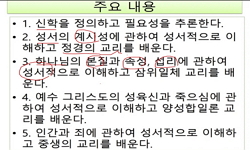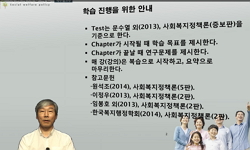The 10th Assembly of WCC will take place in Korea in 2013. Conservative Evangelical churches in Korea take the negative ideas against the WCC. What is the theology of Ecumenical Movement? It is difficult to understand its theology. But it might be pos...
http://chineseinput.net/에서 pinyin(병음)방식으로 중국어를 변환할 수 있습니다.
변환된 중국어를 복사하여 사용하시면 됩니다.
- 中文 을 입력하시려면 zhongwen을 입력하시고 space를누르시면됩니다.
- 北京 을 입력하시려면 beijing을 입력하시고 space를 누르시면 됩니다.
https://www.riss.kr/link?id=A100668822
-
저자
송인설 (서울장신대학교)
- 발행기관
- 학술지명
- 권호사항
-
발행연도
2010
-
작성언어
Korean
-
주제어
에큐메니칼 운동 ; WCC ; 신학적 패러다임 ; 삼위일체 ; 보편주의 ; Ecumenical Movement ; WCC ; Theological Paradigm ; Trinity ; Universalism
-
KDC
236.911
-
등재정보
KCI등재
-
자료형태
학술저널
- 발행기관 URL
-
수록면
309-341(33쪽)
-
KCI 피인용횟수
1
- 제공처
-
0
상세조회 -
0
다운로드
부가정보
다국어 초록 (Multilingual Abstract)
According to W. A. Visser ‘t Hooft and Konrad Raiser, the Ecumenical movement in the first half of the twentieth century had a theological paradigm of ‘Christocentric universalism’, which had the four elements: Christocentrism, the concentration on the church, the universal perspective of world, and history-centered thought. As the head of church, Jesus Christ let the whole church participate in God’s salvation history to save the whole world.
However, the Ecumenical movement in the second half of the twentieth century developed a new theological paradigm, which included the following four elements: Trinity and the kingdom of God, the deep study of the church, the radical study of the world (humanity) and the emphasis on the nature (creation). It could be said that God the Trinity as the Lord of the Kingdom of God let the whole church participate in the works of the Kingdom of God to save both the world (humanity) and the nature holistically. And the churches, as both sign and instrument of the kingdom of God, work to save the world (humanity) and the nature (creation) under the lordship of the Trinity. So we suggest its theological paradigm to be called as a ‘Trinity-centered universalism.’
As a conclusion, this study pointed up that the theological paradigm of the Ecumenical movement developed from Christocentric universalism to Trinity-centered one. Ecumenical movement took root in the ground in the Korean churches today. The Trinity-centered universalism as a Ecumenical theological paradigm could give the observers a coherent understanding and also provide every Ecumenical workers with a sense of solidarity.
The 10th Assembly of WCC will take place in Korea in 2013. Conservative Evangelical churches in Korea take the negative ideas against the WCC. What is the theology of Ecumenical Movement? It is difficult to understand its theology. But it might be possible to catch the Ecumenical theological paradigm. Ecumenical movement produced the astonishing reports after a series of conferences or assemblies. Students who study the Ecumenical movement tend to be frustrated at its extraordinary documents. So I wonder whether any theological paradigm of the Ecumenical movement could be found. If so, we could grasp the total Ecumenical movement at a glace.
According to W. A. Visser ‘t Hooft and Konrad Raiser, the Ecumenical movement in the first half of the twentieth century had a theological paradigm of ‘Christocentric universalism’, which had the four elements: Christocentrism, the concentration on the church, the universal perspective of world, and history-centered thought. As the head of church, Jesus Christ let the whole church participate in God’s salvation history to save the whole world.
However, the Ecumenical movement in the second half of the twentieth century developed a new theological paradigm, which included the following four elements: Trinity and the kingdom of God, the deep study of the church, the radical study of the world (humanity) and the emphasis on the nature (creation). It could be said that God the Trinity as the Lord of the Kingdom of God let the whole church participate in the works of the Kingdom of God to save both the world (humanity) and the nature holistically. And the churches, as both sign and instrument of the kingdom of God, work to save the world (humanity) and the nature (creation) under the lordship of the Trinity. So we suggest its theological paradigm to be called as a ‘Trinity-centered universalism.’
As a conclusion, this study pointed up that the theological paradigm of the Ecumenical movement developed from Christocentric universalism to Trinity-centered one. Ecumenical movement took root in the ground in the Korean churches today. The Trinity-centered universalism as a Ecumenical theological paradigm could give the observers a coherent understanding and also provide every Ecumenical workers with a sense of solidarity.
참고문헌 (Reference)
1 이형기, "에큐메니칼 운동사" 대한기독교서회 1994
2 Hooft, W. A, "다른 이름은 없다: 혼합주의와 기독교적 우주주의" 성광문화사 1993
3 Kuhn, Thomas S, "과학 혁명의 구조" 정음사 1988
4 "Your Kingdom Come: Mission Perspectives, Report on the World Conference on Mission and Evangelism, Melbourne, Australia, 12-25 May 1980" WCC 1980
5 "World Conference on Church and Society, Geneva, July 12-26, 1966" WCC 1966
6 "Witness in Six Continents, Records of the Meeting of the Commission on World Mission and Evangelism of the World Councils of Churches held in Mexico City, Dec. 8-19, 1963" Edinburgh House Press 1963
7 장윤재, "WCC에 대한 한국 교회의 시각" 25 : 2009
8 "Together on the Way. Edited by Diane Kessler" WCC 1999
9 "The World Mission of the Church, Findings and Recommendations of the Meeting of the International Missionary Council, Tambaram, Madras, India, Dec. 12-29, 1938" IMC 1938
10 Norman Goodall, "The Uppsala Report 1968: Official Report of the Fourth Assembly of the World Council of Churches, Uppsala, 1968" WCC 1968
1 이형기, "에큐메니칼 운동사" 대한기독교서회 1994
2 Hooft, W. A, "다른 이름은 없다: 혼합주의와 기독교적 우주주의" 성광문화사 1993
3 Kuhn, Thomas S, "과학 혁명의 구조" 정음사 1988
4 "Your Kingdom Come: Mission Perspectives, Report on the World Conference on Mission and Evangelism, Melbourne, Australia, 12-25 May 1980" WCC 1980
5 "World Conference on Church and Society, Geneva, July 12-26, 1966" WCC 1966
6 "Witness in Six Continents, Records of the Meeting of the Commission on World Mission and Evangelism of the World Councils of Churches held in Mexico City, Dec. 8-19, 1963" Edinburgh House Press 1963
7 장윤재, "WCC에 대한 한국 교회의 시각" 25 : 2009
8 "Together on the Way. Edited by Diane Kessler" WCC 1999
9 "The World Mission of the Church, Findings and Recommendations of the Meeting of the International Missionary Council, Tambaram, Madras, India, Dec. 12-29, 1938" IMC 1938
10 Norman Goodall, "The Uppsala Report 1968: Official Report of the Fourth Assembly of the World Council of Churches, Uppsala, 1968" WCC 1968
11 "The Third World Conference on Faith and Order, Lund 1952" SCM Press 1953
12 "The Stockholm Conference 1925" Oxford University Press 1925
13 "The Second World Conference on Faith and Order, Edinburgh, 1937" SCM Press 1938
14 Frederick R. Wilson, "The San Antonio Report: Your Will Be Done, Mission in Christ's Way" WCC 1990
15 W. A. Visser 't Hooft, "The New Delhi Report: The Third Assembly of the World Council of Churches 1961" Association Press 1961
16 "The Nature and Mission of the Church: A Stage on the Way to a Common Statement, Faith and Order Paper 198" WCC 2006
17 "The Church Survey Their Task, The Report of the Conference at Oxford, July 1937, On Church, Community, and State" George Allen & Unwin Ltd. 1937
18 "Signs of the Spirit: Official Report of the Seventh Assembly of the World Council of Churches, Canberra, 1991" WCC 1991
19 "Report of the Jerusalem Meeting of the International Missionary Council 1928, 8 vols"
20 Michael Kinnamon, "Report of the Advisory Commission on the Main Theme, Christ-the Hope of the World, Second Assembly of the WCC, Evanston, In The Ecumenical Movement: An Anthology of Key Texts and Voices" WCC 1997
21 G. W. H. Lampe, "One Lord, One Baptism, World Council of Churches Commission on the Faith and Order, St. Andrews 1960" SCM Press 1960
22 "Now Is the Time: Final Document and Other Texts, World Convocation on Justice, Peace and the Integrity of Creation" WCC 1990
23 Breaking Barriers, "Nairobi 1975" WCC 1975
24 "Missions Under the Cross: Addresses delivered at the Enlarged Meeting of the Committee of the International Missionary Council at Willingen" Edinburgh House Press 1953
25 "Man's Disorder and God's Design: The Amsterdam Assembly Series. Vol. 1" Harper 1949
26 D. J. Smith, "Kingdom of God"
27 Geiko Mueller-Fahrenholz, "History, in Salvation History"
28 C. T. McIntire, "God in Nature and History, In God, History, and Historians: An Anthology of Modern Christian Views of History" Oxford University Press 1977
29 David Gill, "Gathered for Life: Official Report, VI Assembly, World Council of Churches, Vancouver, Canada, 24 July - 10 August 1983" WCC 1983
30 "Faith and Science in an Unjust World, Report of the World Council of Churches' Conference on Faith, Science and the Future" WCC 1980
31 "Faith and Order, Proceedings of the World Conference, Lausanne, 1927" WCC 1980
32 W.H.T. Gairdner, "Edinburgh 1910: An Account and Interpretation of the World Missionary Conference" Oliphant, Anderson & Ferrier 1910
33 Raiser, Konrad, "Ecumenism in Transition: A Paradigm Shift in the Ecumenical Movement?" WCC 1991
34 "Ecclesiology and Ethics: Ecumenical Ethical Engagement, Moral Formation and the Nature of the Church" WCC 1997
35 Lukas Vischer, "Documentary History of The Faith and Order Movement 1927-1963" The Bethany Press 1963
36 "Confessing the One Faith: An Ecumenical Explication of the Apostolic Faith as It Is Confessed in the Nicene-Constantinopolitan Creed (381)" WCC 1991
37 "Church and World: The Unity of the Church and the Renewal of Human Community" WCC
38 Sittler, Joseph, "Called to Unity"
39 Christopher Duraisingh, "Called to One Hope: The Gospel in Diverse Cultures" WCC 1998
40 "Baptism, Eucharist, and Ministry" WCC 1982
41 Hans-Georg Link, "Apostolic Faith Today" WCC 1985
동일학술지(권/호) 다른 논문
-
- 한국교회사학회
- 주승민
- 2010
- KCI등재
-
- 한국교회사학회
- 정용석
- 2010
- KCI등재
-
- 한국교회사학회
- 정미현
- 2010
- KCI등재
-
- 한국교회사학회
- 황정욱
- 2010
- KCI등재
분석정보
인용정보 인용지수 설명보기
학술지 이력
| 연월일 | 이력구분 | 이력상세 | 등재구분 |
|---|---|---|---|
| 2026 | 평가예정 | 재인증평가 신청대상 (재인증) | |
| 2020-01-01 | 평가 | 등재학술지 유지 (재인증) |  |
| 2017-01-01 | 평가 | 등재학술지 유지 (계속평가) |  |
| 2013-01-01 | 평가 | 등재학술지 유지 (등재유지) |  |
| 2010-01-01 | 평가 | 등재학술지 선정 (등재후보2차) |  |
| 2009-01-01 | 평가 | 등재후보 1차 PASS (등재후보1차) |  |
| 2008-01-01 | 평가 | 등재후보 1차 FAIL (등재후보1차) |  |
| 2007-01-01 | 평가 | 등재후보학술지 유지 (등재후보1차) |  |
| 2006-01-01 | 평가 | 등재후보학술지 유지 (등재후보2차) |  |
| 2005-01-01 | 평가 | 등재후보 1차 PASS (등재후보1차) |  |
| 2004-01-01 | 평가 | 등재후보학술지 유지 (등재후보1차) |  |
| 2002-01-01 | 평가 | 등재후보학술지 선정 (신규평가) |  |
학술지 인용정보
| 기준연도 | WOS-KCI 통합IF(2년) | KCIF(2년) | KCIF(3년) |
|---|---|---|---|
| 2016 | 0.19 | 0.19 | 0.24 |
| KCIF(4년) | KCIF(5년) | 중심성지수(3년) | 즉시성지수 |
| 0.21 | 0.2 | 0.452 | 0 |




 코리아스칼라
코리아스칼라






